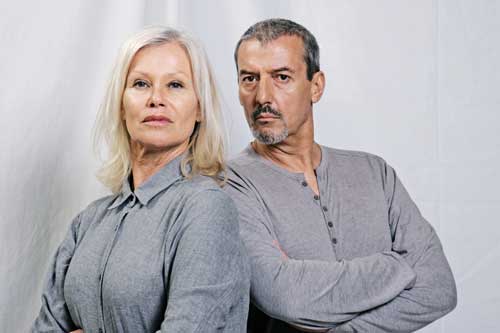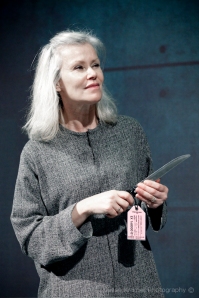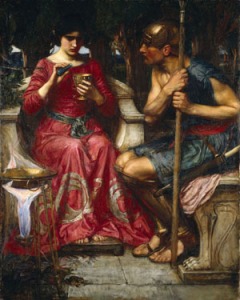 Purgatorio is a pivotal work for me. Although it takes up many of the themes that have been central to my previous work (the dilemmas of forgiveness and retribution, the uncertainty of memory, the search for some ray of hope in times of terror and betrayal, the problem of identity in a world of false fundamentalisms), those themes were explored primarily in a historical moment and brought into focus by some primeval form of violence (torture in Death and the Maiden, censorship in Reader, disappearances in Widows, an array of forms of repression in Voices from Beyond the Dark: the Speak Truth to Power play), it is in Purgatorio that I plunge for the first time into the naked (and masked, of course) human relations without an immediate political context.
Purgatorio is a pivotal work for me. Although it takes up many of the themes that have been central to my previous work (the dilemmas of forgiveness and retribution, the uncertainty of memory, the search for some ray of hope in times of terror and betrayal, the problem of identity in a world of false fundamentalisms), those themes were explored primarily in a historical moment and brought into focus by some primeval form of violence (torture in Death and the Maiden, censorship in Reader, disappearances in Widows, an array of forms of repression in Voices from Beyond the Dark: the Speak Truth to Power play), it is in Purgatorio that I plunge for the first time into the naked (and masked, of course) human relations without an immediate political context.
In that sense, it is a play that asks us all questions about redemption and myth and above all if it is possible for love to prevail when terrible things have been done to us and, far too often, by us.

Everything I have written since then has deepened this exploration.
Now as to the origin of that story, at first I wasn’t sure where the confrontation between that man and that woman happened, but slowly realized that it was the afterlife, and that they needed each other’s absolution to be reincarnated or simply to be purged of what they had done. Although the place I have imagined is not quite the Christian Purgatory, and certainly not Dantesque, inasmuch as there seems to be no God who can deliver these two from each other (in fact, it seems to echo Buddhism, if anything at all), I loved the idea of calling it Purgatorio, also a name that works in many languages, another thing I am fascinated with as a bilingual author.
And is going to appear, after all, in a multilingual country, such as South Africa, a land close to my heart and also experiencing the problems of damage and reconciliation between former enemies that is central to the play. And because this work has echoes about colonialism, about men who come from afar to a land that is not theirs and the women who receive them and cross over to the foreign culture only to then be betrayed by their invader/lovers, because there are hints that they belong to two different races, this might resonate in your country in ways that could be singular.

Though, of course, finally, what matters is not any political message embedded in the depths of Purgatorio, but that the audience empathize with the two characters, in turn, and then together. The play, after all, really transpires in the mutual mind of them both – they are as joined as a Moebius Strip, looping into each other, entangled in ways that we all are with those we love (and also, paradoxically, with those we hate), so we cannot be with one without being with the other, until we all reach what I hope is a satisfying finale to this odyssey of self-discovery.
 Now that the pressure of the opening weekend is behind them, the Purgatorio cast and crew can breathe a sigh of relief and focus on delivering top-quality theatre every night of the week.
Now that the pressure of the opening weekend is behind them, the Purgatorio cast and crew can breathe a sigh of relief and focus on delivering top-quality theatre every night of the week. 





